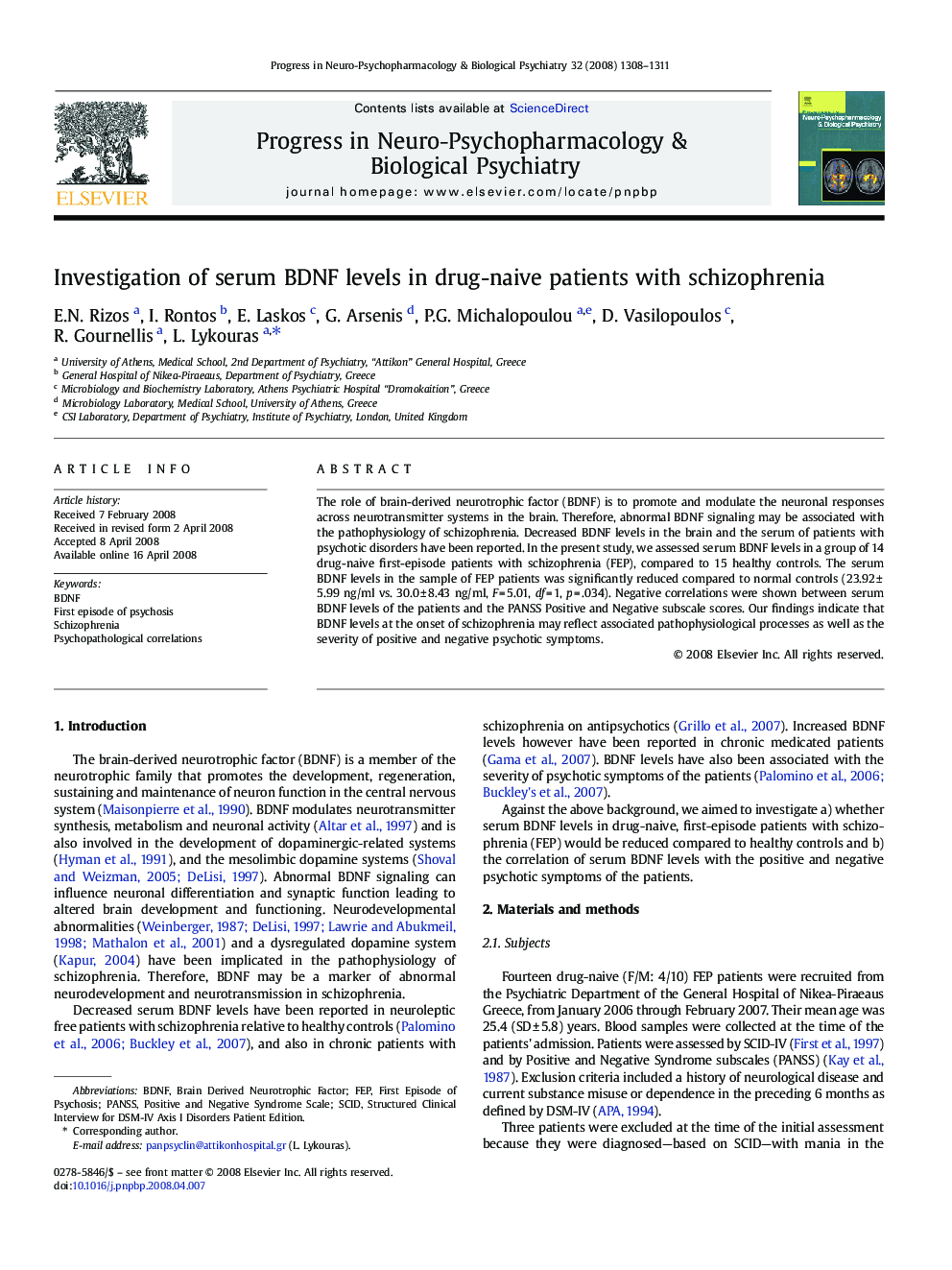| Article ID | Journal | Published Year | Pages | File Type |
|---|---|---|---|---|
| 2566598 | Progress in Neuro-Psychopharmacology and Biological Psychiatry | 2008 | 4 Pages |
The role of brain-derived neurotrophic factor (BDNF) is to promote and modulate the neuronal responses across neurotransmitter systems in the brain. Therefore, abnormal BDNF signaling may be associated with the pathophysiology of schizophrenia. Decreased BDNF levels in the brain and the serum of patients with psychotic disorders have been reported. In the present study, we assessed serum BDNF levels in a group of 14 drug-naive first-episode patients with schizophrenia (FEP), compared to 15 healthy controls. The serum BDNF levels in the sample of FEP patients was significantly reduced compared to normal controls (23.92 ± 5.99 ng/ml vs. 30.0 ± 8.43 ng/ml, F = 5.01, df = 1, p = .034). Negative correlations were shown between serum BDNF levels of the patients and the PANSS Positive and Negative subscale scores. Our findings indicate that BDNF levels at the onset of schizophrenia may reflect associated pathophysiological processes as well as the severity of positive and negative psychotic symptoms.
